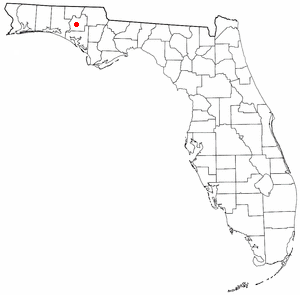In the late 1950s and early 60s, the Florida Panhandle was responsible for two-thirds of all loss-of-limb accident claims in the United States due largely to one town: Vernon, Florida.
This was because Vernon was the site of a widespread insurance scam where residents would dismember themselves for a payout. The problem was so extensive, the town became known as, “Nub City” for this very reason, was in dire economic straits.
Now I Know: Quite literally, people in Vernon were shooting themselves, blowing off a limb, and collecting on the insurance. How the trend started, no one knows — perhaps it was an accident at a sawmill or with a plow, or perhaps it was a calculated effort to scam an insurance company out of tens of thousands of dollars (or more). Truly, it doesn’t matter. For when word got out that so-and-so just received a check for untold riches — and all it cost him was a hand or foot, perhaps even to the elbow or knee — well, the idea spread. By the time the early 1960s rolled around, according to the Tampa Bay Times, Vernon, Florida was responsible for roughly two-thirds of all loss-of-limb-related insurance claims in the United States.
Some of the claims were looked into by insurance investigator Joe Healy:
One of the clues to a phony injury, Healy notes, is that people “usually take off the thing they need least, like their left hand rather than the right one. If they have a sitdown job, they'll take off a leg or foot, not an arm.” More often than not, too, maiming oneself for insurance money is a white collar practice, Healy says, remarking that a few years back he found an owner of a car dealership who put out his eye for $400,000 to buy a ranch.
“Blue‐collar workers generally need their limbs and eyes to do their work,” he explains. Self ‐injury, in fact, is a fairly common insurance‐fraud act. There are even informal “rings” of people, usually limited to one locale or a closeknit family or ethnic group, who inflict self‐injuries. “Another clue to a phony claim,” says Healy, “is when several ‘accidental’ injuries occur in the same place in a short period of time.” Usually everincreasing amounts of insurance are involved. “One guy gets away with it and he collects,” Healy says. “Then he tells a friend about it and he goes and does the same thing, but takes out a bigger policy, and on.”
Over the time period in question, a total of fifty people (give or take) lost a limb of some sorts, many if not all filing insurance claims thereafter. While the insurers attempted to bring lawsuits actions against some of these people, not one was convicted of insurance fraud. One alleged transgressor was particularly egregious, but, as the Times notes, he avoided conviction and walked away a one-footed millionaire:
“There was another man who took out insurance with 28 or 38 companies,” said Murray Armstrong, an insurance official for Liberty National. “He was a farmer and ordinarily drove around the farm in his stick shift pickup. This day – the day of the accident – he drove his wife’s automatic transmission car and he lost his left foot. If he’d been driving his pickup, he’d have had to use that foot for the clutch. He also had a tourniquet in his pocket. We asked why he had it and he said, ‘Snakes. In case of snake bite.’ He’d taken out so much insurance he was paying premiums that cost more than his income. He wasn’t poor, either. Middle class. He collected more than $1 million from all the companies. It was hard to make a jury believe a man would shoot off his foot.”Also per the Tampa Bay Times:
L.W. Burdeshaw, an insurance agent in Chipley, told the St. Petersburg Times in 1982 that his list of policyholders included the following: a man who sawed off his left hand at work, a man who shot off his foot while protecting chickens, a man who lost his hand while trying to shoot a hawk, a man who somehow lost two limbs in an accident involving a rifle and a tractor, and a man who bought a policy and then, less than 12 hours later, shot off his foot while aiming at a squirrel.
A few years later, a film maker named Errol Morris came to Vernon, hoping to make a movie (tentatively titled “Nub City”) about the purported scam. But faced with death threats and the like, he instead produced a much less controversial film of the town and named it, cautiously, “Vernon, Florida.” The well-regarded documentary focuses on the town more broadly, bringing to film many eccentricities about the community — but does not focus on the decision of many to dismember themselves.
More at the Tampa Bay Times and Now I Know



Note that some now argue that medical personnel should be permitted to grant a patient's wish for an amputation. Some compare it to the controverted gender operations. One assumes the amputees would not be paid special payoffs; but the operations would be allowed.
ReplyDelete